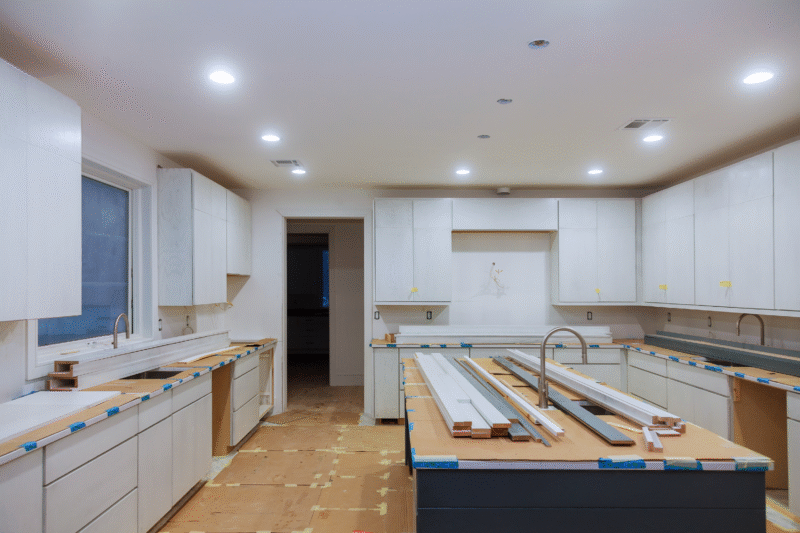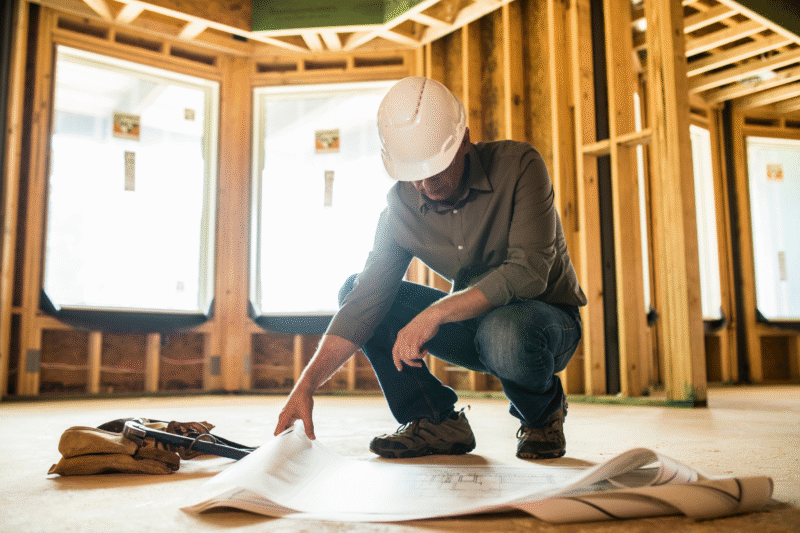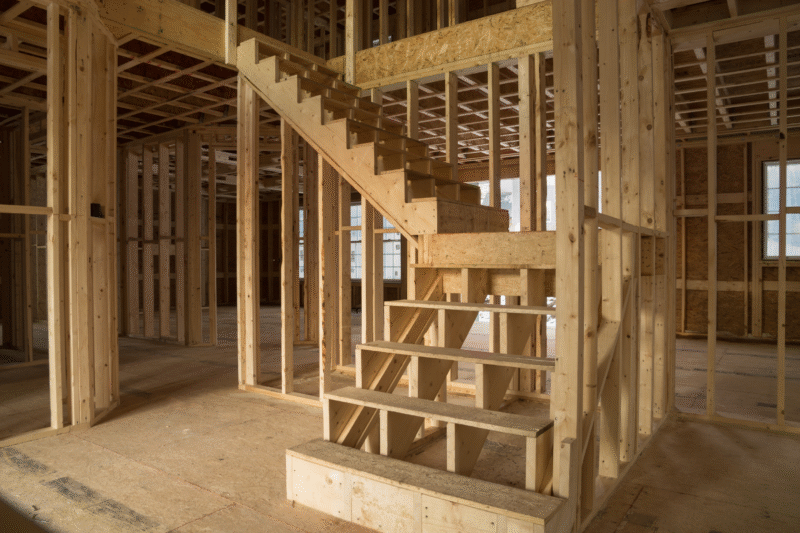Thinking about extending your home in Melbourne? It’s a big decision, and becoming a popular choice for homeowners wanting more space, without having to sell and relocate. Whether you’re making space for a growing family, craving an open-plan kitchen, or just want to add value to your property, a home extension can be a smart move. But before you dive in, it’s important to get a clear picture of the costs involved. This 2025 guide walks you through what to expect, from square metre pricing to hidden expenses, plus expert tips to help you plan with confidence.
Understanding Home Extension Costs in Melbourne
Ground Floor Extensions
Ground floor extensions are a popular choice for homeowners looking to expand their living areas, add new rooms, or create open-plan spaces. The cost of a ground floor extension in Melbourne typically ranges from $2,400 to $4,500 per square metre, depending on factors such as design complexity, materials, and site conditions.
If you’re working with a custom home builder who focuses on high-end, architecturally designed extensions, you can expect prices to be a bit higher. That’s because these projects often use premium materials, include one-of-a-kind design elements, and require a level of craftsmanship and attention to detail that goes beyond standard construction. For mid-tier custom projects that include architectural features and luxury specifications, costs typically range between $3,500 and $4,500 per square metre. At the high end, highly detailed extensions with premium materials and bespoke finishes can reach anywhere from $5,000 to $10,000 per square metre.
For single-storey extensions with more complex layouts or high-end finishes, costs often range between $4,000 to $5,000 per square metre, though larger or intricately designed projects can push beyond this range.
If you’re planning a larger ground floor extension, such as an 80 square metre ground floor addition to accommodate a new home office, ensuite, or larger kitchen, it’s essential to know the exact cost upfront and account for the quality of inclusions, cladding, and project management expenses.
Second Storey Extensions
Adding a second storey is an effective way to increase living space without sacrificing outdoor areas. However, it involves additional structural work, such as reinforcing foundations and installing staircases, which can increase costs.
In Melbourne, second storey extensions typically cost between $3,800 and $5,500 per square metre. For a 100 square metre addition, you can expect to pay between $380,000 and $550,000. Second storey additions are ideal for a growing family in need of extra bedrooms, a second bathroom, or a private retreat.
Factors Influencing Extension Costs

Several factors can impact the overall cost of your home extension:
- Size and Scope: Larger extensions require more materials and labour, increasing costs.
- Design Complexity: Custom designs or unique architectural features can add to expenses.
- Materials and Finishes: High-quality materials and finishes will increase the budget.
- Site Conditions: Sloping blocks, difficult access, or existing structural issues can lead to higher costs.
- Plumbing and Electrical Work: Adding or relocating wet areas like kitchens and bathrooms involves additional plumbing and electrical work.
- Council Approvals and Permits: Obtaining necessary approvals can incur fees and extend timelines. Check with your local council for guidance.
- Professional Fees: Architects, engineers, and project managers charge fees that should be factored into the budget.
These costs vary depending on the location, builder, and overall scope of the extension project. It’s vital to consider the total costs before you commit to an extension to your current home.
Additional Costs to Consider
Beyond the primary construction expenses, there are several additional costs to keep in mind:
- Design and Documentation: Architectural drawings, engineering reports, and planning documents can cost between $5,000 and $20,000.
- Council Fees: Planning permits, building permits, and other council fees may range from $1,000 to $5,000.
- Demolition and Site Preparation: Removing existing structures or preparing the site can add $10,000 to $30,000 to your budget.
- Temporary Accommodation: If you need to vacate your home during construction, consider the cost of alternative accommodation.
- Contingency Fund: It’s advisable to allocate an additional 10-20% of your total budget for unforeseen expenses.
Keep in mind that additional costs like kitchen renovation, windows and doors upgrades, indoor-outdoor transitions, and foundation work and other major structural changes can quickly add to the cost of a home extension.
Types of Home Extensions
Understanding the different types of extensions can help you choose the best option for your needs:
- Rear Extensions: Extend your home towards the backyard to create larger living areas or open-plan kitchens.
- Side Extensions: Utilise the space beside your home for additional rooms or expanded living areas.
- Wrap-Around Extensions: Combine side and rear extensions for maximum space enhancement.
- Second Storey Additions: Add a new level to your home, ideal for extra bedrooms or a master suite.
- Granny Flats: Self-contained units that can serve as guest accommodations or rental properties.
Different types of home extensions suit different needs, so be sure to align your design with your lifestyle, whether you’re building for a larger home or aiming to add value to your home ahead of putting it on the market.
Planning Your Home Extension
Effective planning is essential to ensure a successful extension project:
- Define Your Goals: Determine what you want to achieve with the extension, additional space, improved functionality, or increased property value.
- Set a Realistic Budget: Consider all costs, including construction, design, approvals, and contingencies.
- Engage Professionals: Hire experienced architects, builders, and consultants familiar with Melbourne’s building regulations.
- Obtain Necessary Approvals: Check with your local council for required permits and approvals.
- Plan for Living Arrangements: Decide whether you’ll stay in your home during construction or arrange alternative accommodation.
For more detailed planning advice, refer to our Planning Your Home Extension Guide.
Choosing the Right Builder

Selecting a reputable builder is crucial for the success of your extension project:
- Experience: Look for builders with a proven track record in home extensions.
- Credentials: Ensure they are registered with the Victorian Building Authority.
- References: Ask for and check past client references.
- Transparent Pricing: Obtain detailed quotes that outline all costs and inclusions.
Engaging experienced home extension builders can help you keep your house extension costs under control, avoid expensive and time-consuming delays, and ensure the final outcome aligns with your expectations.
Building a Home Extension in Melbourne: What You Need to Know
A well-planned home extension can significantly enhance your living space and add value to your property. By understanding the costs involved and engaging experienced professionals, you can navigate the process with confidence.
At Karja Builders, we specialise in custom home extensions tailored to your unique needs. Our team is dedicated to delivering high-quality craftsmanship and seamless project management. Contact us today to discuss how we can bring your vision to life.

